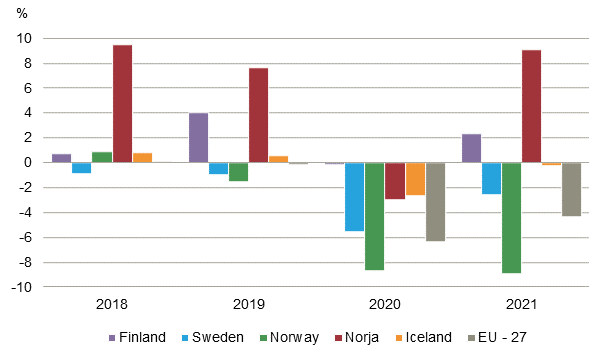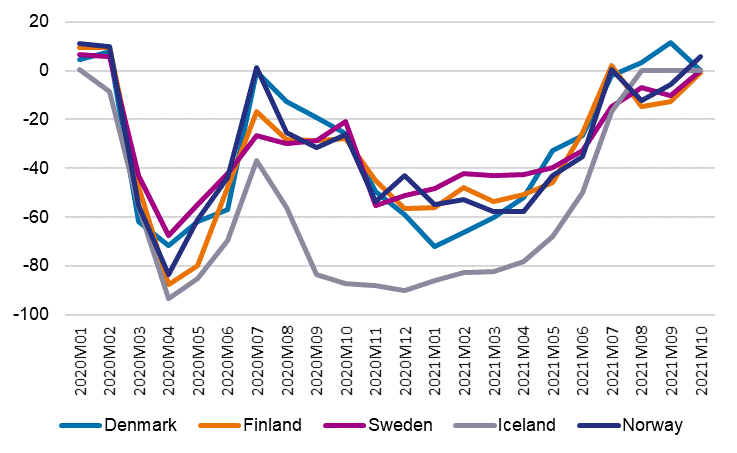News 1 Jun 2022
COVID-19 pushed public finance into deficit in all Nordic countries
The economy contracted strongly in all Nordic countries when the corona pandemic started in spring 2020. After the initial shock, business activity recovered rapidly, with the exception of tourism, restaurant and event sectors. The survival of enterprises and households was supported largely with public funding in all Nordic countries. Except for Iceland, gross domestic product had returned to pre-pandemic levels in all Nordic countries in the last quarter of 2021.
As income fell and expenditure grew, public finance fell into deficit in all Nordic countries in 2020. The countries’ different initial situation can be seen in the recovery of public finance. In 2021, the public finance of Norway and Denmark went back to surplus, that of Sweden was stabilised and Finland's deficit contracted to -2.6 per cent.
Government surplus/deficit relative to gross domestic product in 2018 to 2021

Tourism has been one of the industries hit most by the pandemic. In April 2020, the number of nights spent by tourists in the Nordic countries went down by 67 to 94 per cent from the pre-pandemic period.
The fairly fast recovery of domestic tourism has supported tourism industries and partly closed the gap left by foreign tourists. Among the Nordic countries, tourism is of the most importance to the economy of Iceland. The recovery of tourism in Iceland has been slowest in the Nordic countries.
Nights spent by tourists in 2020 to 2021, change from two years ago (%)

The data are extracts from the joint publication of national statistical institutes, The Nordics during the first phases of COVID-19, to the writing of which Statistics Finland has contributed. The report provides Nordic comparison data on the effects of the pandemic on health, macro economy, businesses and the labour market. The report describes the development during 2020 to 2021, spanning the period from the beginning of the pandemic to the situation when the majority of the Nordic population had been vaccinated.
The Nordics during the first phases of COVID-19 (PDF)
Further information: Senior Advisor Kristian Taskinen tel. +358 29 551 2238
